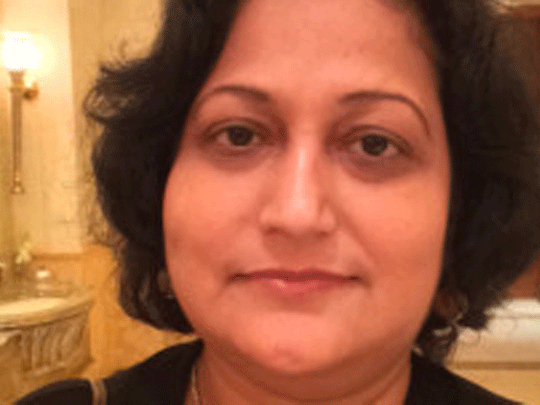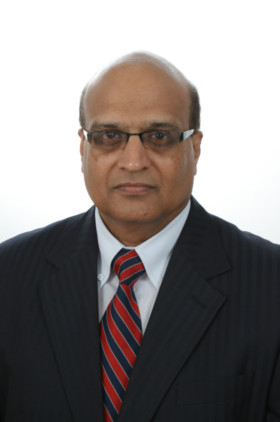
Prevention is better
Online self-diagnosis or a traditional appointment with an experienced doctor? The latter definitely seems more rational. To be able to sit at home and dig out a cure to any disease existing does sound comfortable and inexpensive, but is all this worth risking your life for? The internet can by no means substitute the expertise of a doctor and trusting it completely is nothing but utter folly since anyone [doctor or no doctor] can put up anything they like or seem to know of on Google or Wikipedia. A proper medical study of over six years is and can never be a match to green, inexperienced advise thrown on the cyberspace by an anonymous individual. Furthermore, your self-diagnosis might lead to misdiagnosis, bringing your health to a more critical stage. There are several symptoms that characterise more than one form of a disease/illness, and only doctors know how to rule out options using laboratory tests or other clinical appearances. Taking inappropriate medications without complete knowledge, depending on the internet wholly can also lead to unforgivable side effects. Visiting a doctor then might not turn out to be as fruitful as visiting one earlier. As a future doctor myself, I support the idea of people having easy access to information related to their health within arm’s reach. The problem arises when they try implementation without consulting a doctor. Not only has this reduced the control of doctors in specific cases, but has also proven to be a communication barrier in the doctor-patient relationship. Therefore, keep your Wifi close but keep your doctor closer.
From Ms Zainab Riaz
Pakistani student of dentistry based in Sharjah
Accountability needed
The subject of self-diagnosis is a relatively new phenomenon familiar to doctors all around the world. It is becoming more prevalent as internet use increases and patients of all ages become more familiar with technology. Like many things it brings with it some benefits and, of course, some drawbacks. Patient’s access to medical knowledge allows them to be more familiar with their health problems and thus demands higher quality care from all healthcare professionals alike, which is great. Doctors are now more accountable for all the tests they perform and the diagnoses they make. As a doctor aspiring to constantly improve not only myself but also the healthcare in my country I welcome the challenge and encourage patients to know as much as they can about their health and demand the best quality healthcare available from their doctors. However, this comes at a price! Reading about an issue does not make you an expert and can never replace the years of study and experience doctors gain through their hard work. Also, where patients get their information from is important, how can they trust what they read? This exposes them to a world of dangers that they should be extremely cautious of. Patients should never make health decisions on their own and decide that they know exactly what’s going on. The consequence being long term or permanent damage to their health, a mistake you may never be able to fix. Knowledge is power but abuse of power is the greatest of weaknesses.
From Dr Rashid Mahboubi
Emirati doctor based in Dubai
Never replace a doctor
In light of technological advance, we turn to Google to clear our doubts. Indeed, it is very helpful to use on a daily basis depending on the matter. However, we must be careful and think twice when using it to clear our doubts of any medical complications. This is mainly because we always tend to make our symptoms fit to what we assume that we are suffering from, and therefore, in most cases, the diagnosis is far from reality. I do believe that search engines come in hand when we need to self diagnose simple conditions such as a common cold or an insect bite in order to find solutions for home remedies. But the moment that we start medicating ourselves according to the condition that we think that we are suffering from, that is when self-diagnosis becomes dangerous. Medicines are not meant to be consumed based on assumptions, and there are various factors that decide upon the dose that we are supposed to take, so, with that in mind, only a doctor can advice on any medical solution. Doctors are educated to diagnose us based on our symptoms and in turn, they will prescribe the proper medicine based on what is suitable for you and your body. Therefore, trying to replace the role of a doctor by self diagnosing ourselves can have tremendous negative results. However, I definitely think that the possibility of reading up on various symptoms and diseases is useful as it improves our knowledge and we may or may not gain mental satisfaction. But in the end, the final call should be made from a doctor and not an online search engine because trying to self diagnose ourselves is an incomplete and improper way of receiving medical treatment. Self-diagnosis can never replace the role of a doctor.
From Ms Archana Sen
Indian homemaker based in Abu Dhabi
Monopoly is on the rise
Self-diagnosis can never replace the role of a doctor. It is fine to do an online search for simple symptoms such as a cold as simply going to the pharmacy can solve that. However, it is not suitable to depend on Google for major complications. Self-diagnosis is mostly inaccurate as it tends to exaggerate your condition; however, if you’re lucky it might actually go right. Being a doctor, I have noticed an increase in self-diagnosis fuelled by search engines. Something as simple as a swelling is misinterpreted to cancer. Whenever a patient walks in and assumes they’re suffering from cancer, I always ask: “Did you find that on Google?” And most often they did. Self-diagnosing more than often results in misdiagnosing as a software cannot analyse a patient. Incomplete knowledge does lead to further health complications and patients turn to Google as a first call, then pharmacy and going to see a doctor is the final call where whatever mistake has been done will be corrected. I do not think that the role of a doctor is becoming insignificant, at least not in the next 50 years; rather it is a matter of people trying to be independent. What we do that Google cannot is to look at the person’s general condition bearing in mind his or her temperature, hydration and pain level before making a final decision. Easy access to information has actually increased the monopoly of doctors because self-diagnosis is actually causing more problems than it is solving. The reason for people turning to online solution may be because of its availability and the fact that it is easily accessible for anyone, long hospital queues as well as the issue of healthcare and insurance.
From Dr Lalit Taori
Indian general practitioner based in Dubai
The internet is a good option
Many a times, if you ask three doctors to look at the same problem, you’ll get three different diagnoses and three different treatment plans. Computers can take on much of that diagnosis and treatment and even do these functions better than the average doctor. Shouldn’t we take advantage of that when it comes to our health?!
Nowadays we can find various home remedies online, and I believe it is a must to go through them as we come to know of many side effects of a particular medicine, which otherwise we are unaware of. Technology should be used to compensate for human deficiencies and amplify our strengths. Even after consulting a doctor, it is wise to do some research and then proceed with the treatment. A self-diagnosis will always open more ways of treating yourself. We can look upon many more aspects, which may be at times the doctors may not come to know of.
For simple day-to-day health problems, I personally rely on home remedies provided by research. This way I am able to avoid many medicines, which in the long-term have many side effects. Thus, we should make use of the benefits of technology. A doctor’s advice is a must in case of severe health problems. Technology cannot replace traditional doctors but will surely be helpful for a better diagnosis and treatment.
From Ms Anju Chhatwani
Indian homemaker based in Dubai
Facebook comments:
Many diseases have similar symptoms. Agreed to the fact that Google can provide information about everything and anything, but yet it’s not advanced enough to help us do x-rays and analyse our body.
From Ms Sairah Zakir
UAE
It’s good to use Google for reference but be wise! Each individual is unique and different in terms of diagnosis and medical treatment. Self-diagnosis shouldn’t be practiced if you value your health and life.
From Mr Pol Lee Sayer
Abu Dhabi
Yes [I have self diagnosed myself] a numerous times. In fact, it is cheaper and better than a lot of doctors in our part of the world!
From Mr Talha Ugradar
Lusaka, Zambia
Of course, we can never give up on professional help from doctors. Nowadays, people are getting self aware and in most cases googling things might actually get things done.
From Mr Karim R A Altal
Dubai
Thanks to Google and Wikipedia, we can save on increased medical fees.
From Ms Krishanthi Ganegoda
Dubai
There is nothing wrong with following the natural ways of treating a simple and mild sickness.
From Ms Aimee Semilla
UAE















